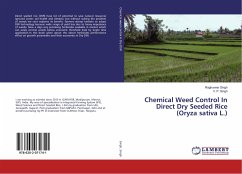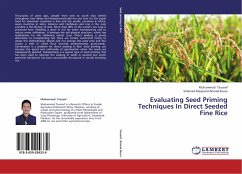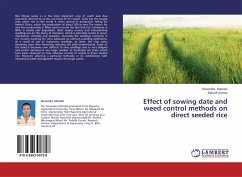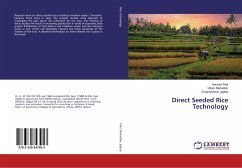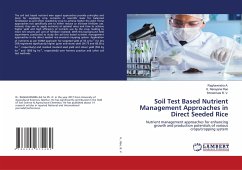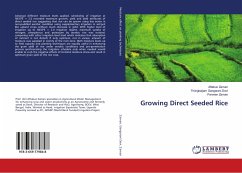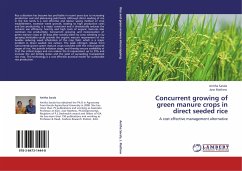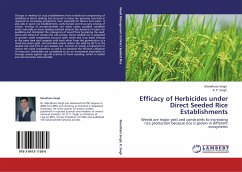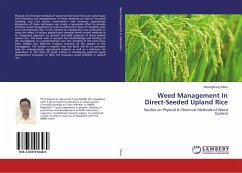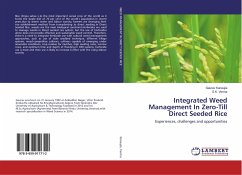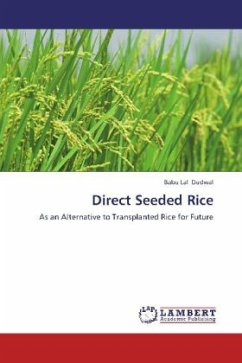
Direct Seeded Rice
As an Alternative to Transplanted Rice for Future
Versandkostenfrei!
Versandfertig in 6-10 Tagen
32,99 €
inkl. MwSt.

PAYBACK Punkte
16 °P sammeln!
Rice is one of the most important food crop in the world, and staple for more than half of the global population. Looming water crisis, water-intensive nature of rice cultivation and escalating labour costs drive the search for alternative management methods to increase water productivity in rice cultivation. Direct seeded rice (DSR) has received much attention because of its low-input demand. The development of early-maturing varieties and improved nutrient management techniques along with increased availability of chemical weed control methods has encouraged to switch from transplanted to DS...
Rice is one of the most important food crop in the world, and staple for more than half of the global population. Looming water crisis, water-intensive nature of rice cultivation and escalating labour costs drive the search for alternative management methods to increase water productivity in rice cultivation. Direct seeded rice (DSR) has received much attention because of its low-input demand. The development of early-maturing varieties and improved nutrient management techniques along with increased availability of chemical weed control methods has encouraged to switch from transplanted to DSR culture. This shift should substantially reduce crop water requirements, soil organic-matter turnover, nutrient relations,carbon sequestering, weed biota and greenhouse-gas emissions. Still, weed infestation can cause large yield losses in DSR. This book provides the most updated and comprehensive information related to production technology, potential advantages and problems associated with Direct seeded rice.



